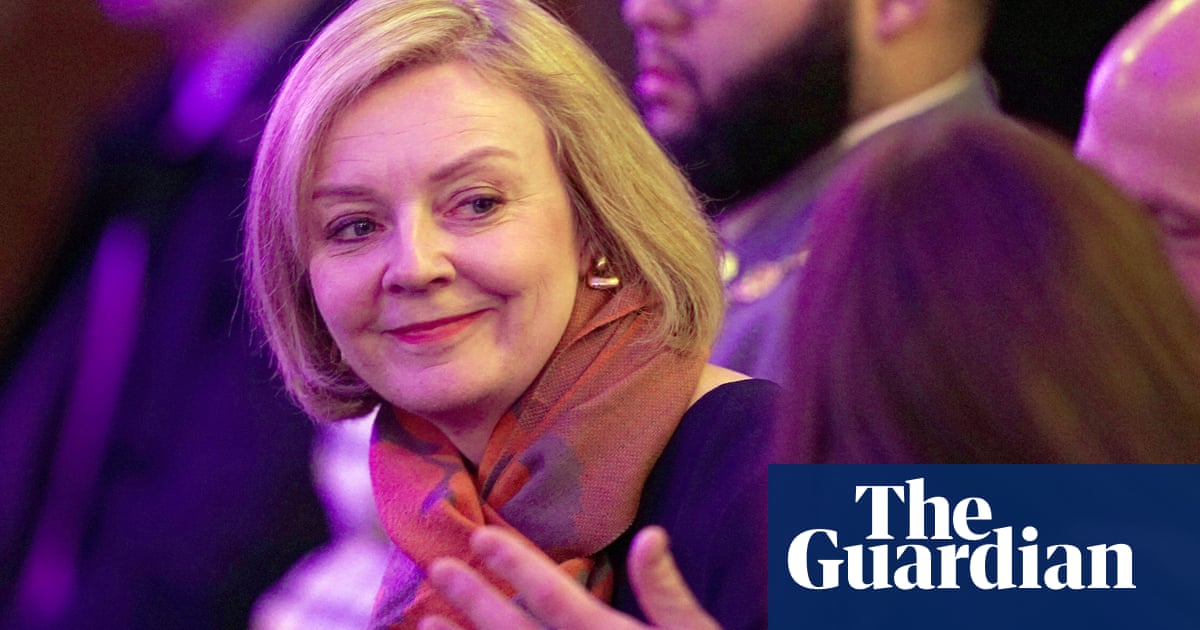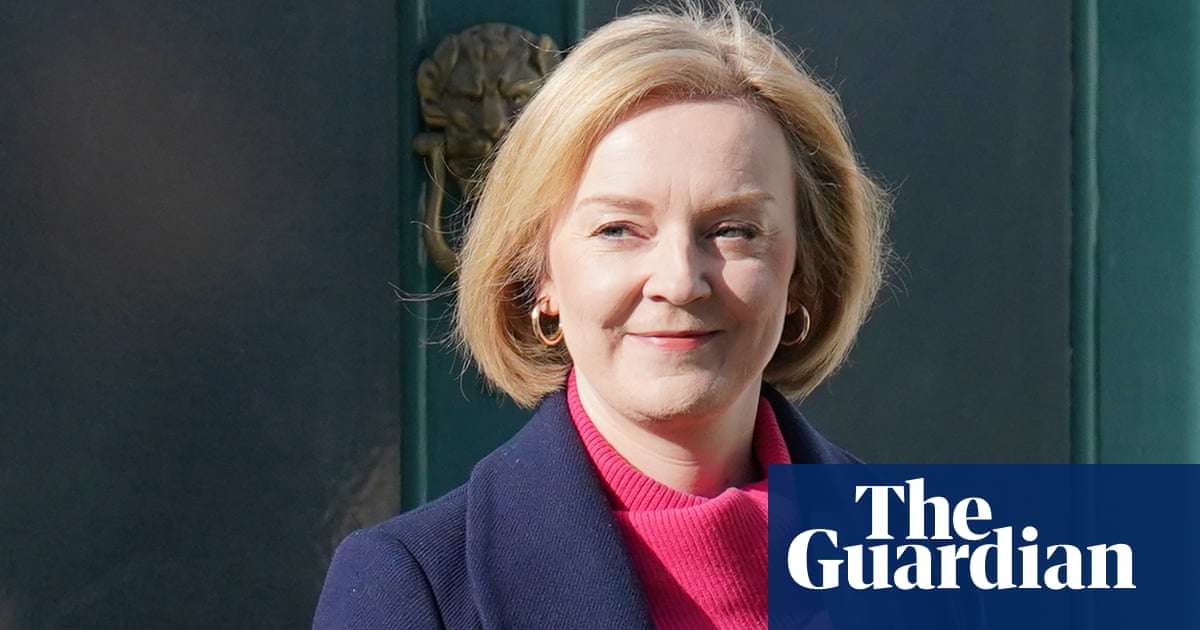
Liz Truss considered cutting cancer care on the NHS in a desperate bid to find savings to pay for the tax cuts in her botched “mini budget”, according to a new book about her time in office.
The book, Truss at 10: How Not to Be Prime Minister by the renowned political biographer Anthony Seldon, is a 330-page long, largely excoriating account of Truss’s 45 days in Downing Street.
The claims about Truss’s economic policy are among the most dramatic in a book which also discusses her fractious relationships with some Tory MPs.
The book reports that, as Truss’s mini budget unravelled around her, her policy director Jamie Hope and economic adviser Shabbir Merali huddled in Downing Street and discussed how the cuts she was contemplating could not be delivered. The book says:
At that point, they were joined by fellow special adviser Alex Boyd, who was told that Truss and Kwarteng were thinking they could still sort out the black hole with severe cuts.
“We’ve been told that they’re looking at stopping cancer treatment on the NHS,” they told him.
“Is she being serious?” Boyd asked. “She’s lost the plot,” they replied. “She’s shouting at everyone – at us and officials that we’ve ‘got to find the money!’ When we tell her it can’t be done, she shouts back, ‘It’s not true. The money is there. You go and find it.’”
A spokesperson for Truss declined to comment. Kwasi Kwarteng, who was chancellor at the time, said: “I wasn’t involved in any conversations about restricting healthcare, but that doesn’t mean the prime minister and her team didn’t discuss this.”
One person familiar with the conversation said the suggestion to cut NHS cancer care came not from Truss herself but from the Treasury, as an illustration of what it would take to fix the black hole in the public finances.
In the end, Truss’s advisers decided to write her a memo detailing how they thought she needed to unwind key elements of her fiscal plan, including sweeping cuts to corporation tax. The message was passed on through James Bowler, the permanent secretary at the Treasury, and helped seal her eventual downfall.
Seldon, who has penned biographies of John Major, Tony Blair, Gordon Brown, David Cameron, Theresa May and Boris Johnson, writes: “Truss had spectacularly failed on the eighth requirement for a successful premiership: financial and economic competence. There were just seven days before she was to announce her resignation.”
Elsewhere in the book, Seldon reports that Truss referred to her former cabinet colleague Michael Gove as a “snake” after Gove said publicly that it was “not Conservative” to fund tax cuts from borrowing.
Despite these misgivings about Gove, however, the book says she still attempted to find room for him in government when she was trying to recover political ground in the wake of the mini budget.
Seldon says in conclusion about Truss: “The [Conservative] party’s long-standing reputation for economic competence and cool-headed pragmatism had been severely tested since 2016, but the final thread was snapped by Liz Truss.”












